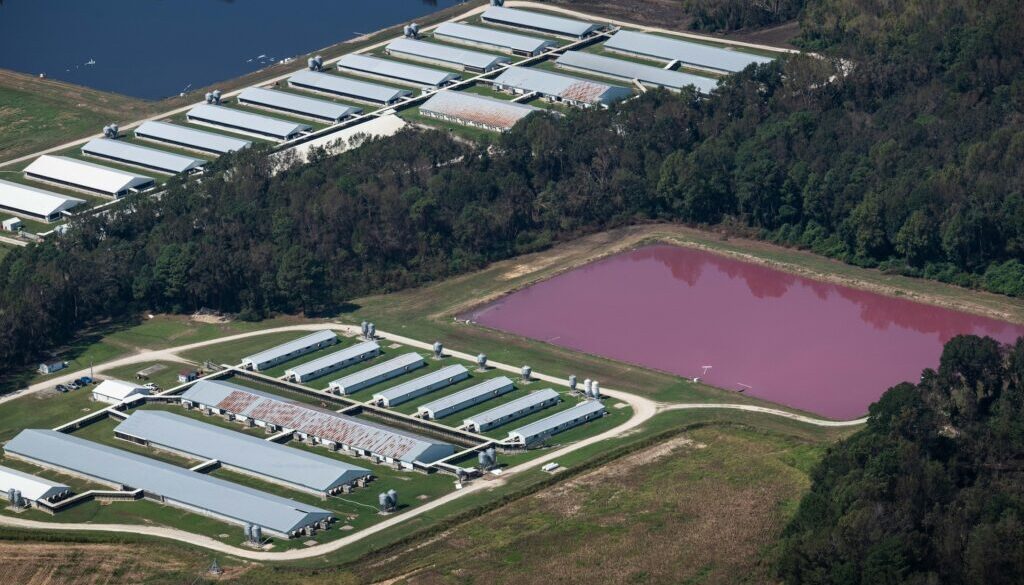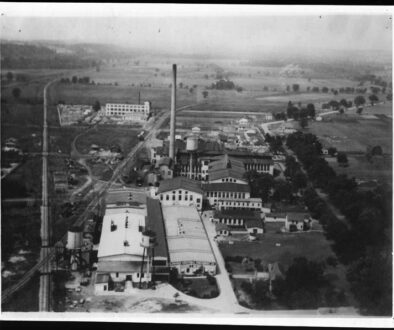Q&A: Taking a stand — new legal group focuses on farm country

The US agriculture industry puts food on Americans’ tables, but many of the farming practices used to produce that food are controversial. Critics say large corporate interests dominate agriculture and push policies and practices that endanger human and environmental health and harm the interests of small farmers and rural communities.
A group of community advocates announced on September 20 that they were joining forces with legal and food system experts to form an organization they’re dubbing “FarmSTAND,” with the specific goal of challenging the companies that dominate US industrial animal agriculture through court actions. The group said it is working to dismantle a “corporate-controlled, industrial food system” and support regenerative farming to help “change the system from the ground up.”
The New Lede spoke with FarmSTAND Executive Director Jessica Culpepper about the group’s goals.
Q: What is your mission? How do you envision FarmSTAND’s role?
A: We really believe that independent farmers and ranchers, food chain workers, and consumers of agricultural products deserve a legal advocacy group that’s focused only on them. That doesn’t exist yet. We are really excited to be that for them.
Q: How did FarmSTAND originate?
A: Initially, we were the Food Project of Public Justice, a national nonprofit legal advocacy organization. Public Justice does really broad legal advocacy work, so while Food Project was focused on industrial animal agriculture, the organization as a whole was not. Everything that they do is worthy of attention, but what we kept hearing from the people we were working with – communities, organizers, and other lawyers – is that they needed more. They would say, “we need more lawyers like this and we need more legal resources.” To continue to grow and meet that need, we really just needed to become our own organization. Becoming FarmSTAND will allow us to keep our focus and put all of our resources into this one issue.
Q: What will FarmSTAND’s work look like?
A: We hope to do two things. The first is to take on cases that build the movement’s collective power to transform the food system. During the team’s time with the Public Justice Food Project, our cases dealt with corporations like Hormel Foods and Smithfield, as well agencies like OSHA [the Occupational Safety and Health Administration. That litigation has been the foundation of our success, and something we will continue to build on. We plan to further cultivate and leverage our relationships with grassroots communities and other organizations, and take on litigation in partnership with community advocates. We can connect with workers in slaughterhouses, communities fighting a new CAFO [Concentrated Animal Feeding Operation], whatever it is. The hope is that by not just litigating but spending a lot of time in relationship with these groups around the country, we become known as a place that people can come to.
We also recognize that hyper local communities need additional, immediate legal resources. While we cannot take all of those on, we are committed to building out a network of lawyers around the country who can show up for communities, whether than means supporting with “one-offs” or with bigger cases. By building out this resource, we aim to expand the kind of impacts that can come when communities are served when they’re harmed by industrial agriculture.
Q: How much startup funding do you currently have to work with and how do you plan to grow the organization?
A: Our initial budget goal is around $2 million. We’re continuing to engage in thoughtful conversations with foundations and donors who care about animals, the environment, or industry transparency around consumer issues, as well as worker justice. It’s essentially the same budget as the Food Project, although we have an aggressive growth plan. Our first priority is building out our organizing staff, since we put as much of our focus on organizing and being in communities as we do on our litigation. We have a really great team of lawyers but we will probably need to bring in another senior attorney focused on the environment, depending on how our case development goes over the next six months to a year.
Once we’re doing that, there’s a lot of work that we have been desperately wanting to do that ties different issue areas together – things like tying slaughterhouse pollution to the labor harms that are going on at slaughterhouses. That takes a lot of capacity, and we need to build out our organizing staff so that we can tell those stories.
Q: Who do you plan to focus your litigation efforts against?
A: FarmSTAND is the only legal organization to focus exclusively on dismantling industrial animal agriculture. We target the structures that have allowed a handful of corporations to consolidate control over animal agriculture and to harm rural communities– whether it’s exploiting workers, externalizing the pollution costs of production onto people living near industrial facilities, or denying independent farmers and ranchers a fair chance to compete. We take on the largest and most powerful corporations in animal agriculture, such as big meatpackers, as well as the state and federal agencies and laws that favor big corporations over local workers, farmers and the environment.
(Jessica Culpepper is Executive Director of FarmSTAND, a new legal group challenging US industrial animal agriculture.)
(Featured image: Aerial view of a CAFO in North Carolina. Photo by Jo-Anne McArthur on Unsplash.)
 EWG
EWG


